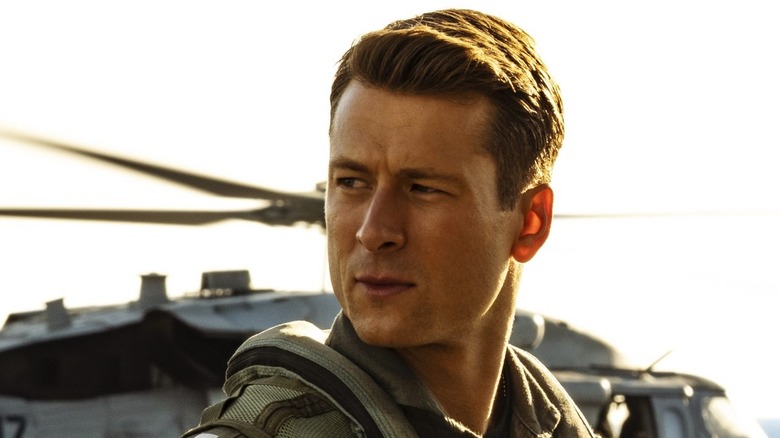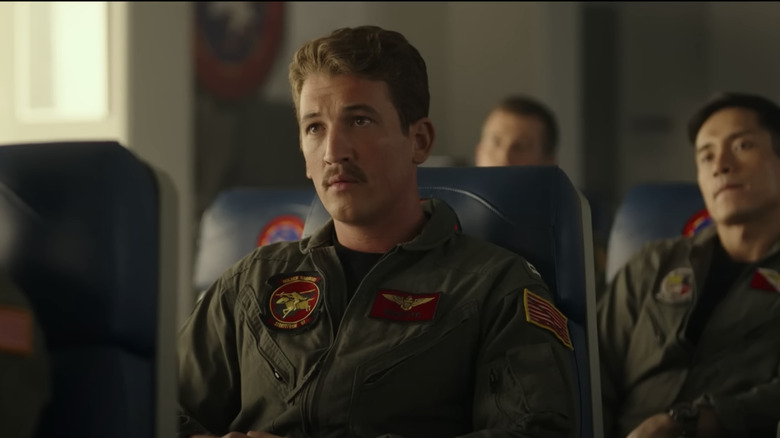Top Gun: Maverick - Hangman Originally Had A Different Call Sign
"Top Gun: Maverick" gave a lot to the post-pandemic cinema landscape. It helped bring nervous audiences back to packed theaters, convinced studio executives that billion-dollar movies that don't involve superheroes were still possible, and it proved that Glen Powell has what it takes to be a major movie star. As LT. Jake "Hangman" Seresin, Powell became the sequel's "Iceman" (Val Kilmer) — a cold-as-steel killer with an appropriately edgy call sign.
But as Powell revealed in an interview with CinemaBlend, his "Maverick" call sign was once even edgier — though significantly less accurate. The 34-year-old "Devotion" actor stated that he was allowed by director Joseph Kosinski to choose his own call sign, recounting, "When I first got the job, immediately my original call sign was 'Slayer.'" Though it paints a vivid image of the character's dangerous ego, it would have had real Navy pilots in the audience shaking their heads.
Luckily, the team behind "Top Gun" connected with service members numerous times to ensure the story's accuracy. "...in the first Navy briefing, they were like, 'You know, these are Air Force call signs, and these are Navy call signs," said Powell. Apparently, the actor was almost immediately told that "Slayer" was definitively an Air Force call sign. "...I was like, 'Well, I gotta change this,'" he admitted. Powell subsequently sought out the company of real aviators, who would ultimately inspire his new name. With additional input from Kosinski and writer Christopher McQuarrie, Powell chose the new moniker "Hangman," which he felt would be a more accurate choice.
Top Gun call signs help the audience understand the characters
Aside from being more dramaturgically accurate, however, Hangman feels more precise for the self-centered pilot. As "Top Gun" recruits earn their nicknames through their actions, Slayer would signify that he was seen as skilled, deadly, and effective by his peers. Hangman, however, was given to him with negative connotations — he earned the name because of how he hangs his team out to dry. Instantly, his call sign helps to define his relationships with the rest of the crew.
In fact, as almost every other actor got to choose their own call sign, each one holds a special meaning. "Rooster" (Miles Teller) is, of course, used in deference to his father, "Goose" (Anthony Edward); "Phoenix" (Monica Barbaro) acknowledges how female pilots feel they need to be more resilient than their male counterparts; even "Bob" actor Lewis Pullman theorized that his seemingly flippant name was given to him by Hangman himself after an act of valor — in this case, B.O.B. would be an acronym for "big ol' balls."
The "Top Gun" call signs may seem arbitrary at first, but they ultimately do help the audience get a clearer picture of who the characters are — and this is especially true for Hangman. That said, if the series ever wants to explore the fast-paced world of Air Force pilots, they should definitely consider Powell's first choice.

